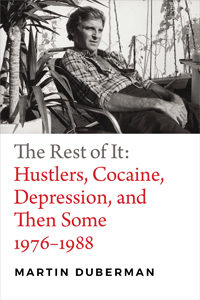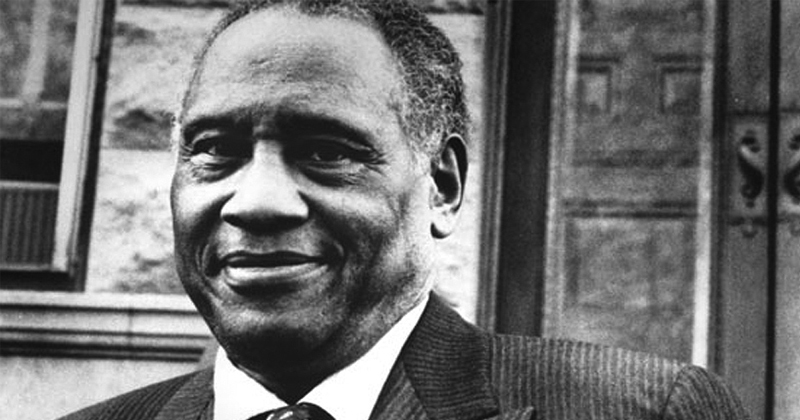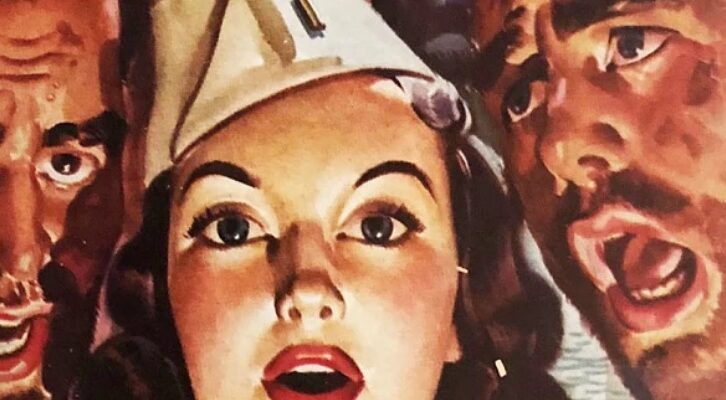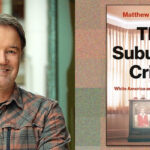How I Ended Up Writing the Legendary Paul Robeson’s Biography
Martin Duberman Looks Back at a Life in Writing
The offer came out of the blue. Frances Goldin, my agent, called to say that Paul Robeson Jr. had just left her office, and their conversation had taken a wildly unexpected turn. She’d recently taken Paul on as a client, helping him search for the right person to do his father’s biography—a search upon which he’d already spent five years. That particular day the two had just returned to Frances’s office after asking the left-leaning publisher Alan Rinzler for advice. In his 20 years in the business Rinzler had made a notable mark, publishing Hunter Thompson, Dee Brown’s Bury My Heart at Wounded Knee, and giving Toni Morrison her first break with The Bluest Eye. Rinzler had urged Frances and Paul to think big, and the names of Morrison and Alice Walker came up; Paul wasn’t enthusiastic about either.
Frances had to cut the meeting short and get back to her office for some pressing business, and she suggested that Paul come with her and browse through her living-room bookshelves while she tended to a conference call. What followed, as Frances later told me, was that Paul took down my biographies of Charles Francis Adams (which had won the Bancroft Prize) and James Russell Lowell (a finalist for the National Book Award), and then browsed through The Uncompleted Past, a collection of my essays, nearly half of them relating to the black struggle. After she finished her conference call, Paul asked her, “Tell me more about this Duberman guy. How come you never suggested him?” “Because,” Frances replied, “you once said that you hated his plays.”
I assume Paul was referring to what was by far my best known play, In White America, a documentary theater piece about being black “in white America” that had opened off-Broadway in 1963 and been a considerable hit—it won the Vernon Rice/Drama Desk Award, had two national tours, and had been produced in London and Paris as well. My guess is that Paul hated the play because it doesn’t include his father’s story—an omission I’d now agree was egregious, but back when I wrote In White America the government had succeeded in making Paul Sr. a nonperson, either absent from the history books altogether or treated as a pro-Soviet traitor. Still, as a professional historian and leftwinger, I should have dug deeper and known better. (When the 50th-anniversary production of In White America opened in New York City in 2015, I added a new scene that encapsulates Robeson’s defiant spirit in facing down—at the cost of his career—the right-wing bigots of the House Un-American Activities Committee.)
Anyway, according to Frances, Paul went on to say (as I recorded in my diary) that he “didn’t know Duberman had written these books. They have all the qualities I’ve been looking for in a writer: an understanding of the complexity of people and events; a prose style alive with nuance; left-wing but not dogmatic political views—plus a bent for theater.” Frances confirmed his judgment and asked Paul if he wanted her to set up a preliminary meeting. He did, and within the week the three of us were sitting in Frances’s living room discussing prospects.
We talked for six hours, at the end of which (as I wrote in my diary that night) “Paul said he didn’t need any further meetings—he was now sure he wanted me—and I said I was enthusiastically prepared to accept on the spot.” He offered me exclusive access for seven years to the previously closed—and vast—Robeson archives, currently housed in a nondescript Manhattan office building. Those terms were immensely generous—ideal in fact. Yet there was one outstanding issue, I said, that we hadn’t addressed.
“Paul said he was ready to turn his father over to history, to ‘give him up.’ But why so precipitously, to a man he’d met once? To a white, Jewish, gay activist?”
Frances had warned me in advance that Paul might well ask for “final approval” of the manuscript in any contract we drew up. If true, I told her, I wouldn’t be able to accept the offer—I couldn’t have the son of my subject, with his own emotional investment, constantly looking over my shoulder, protesting my interpretations, demanding changes. That would work against my responsibility to do as objective a job as possible—even while fully aware that the goal of objectivity could only be approached, never achieved.
I made all that clear to Paul during that first meeting. I told him that final say over what did or did not go into the book had to be mine alone—that if he was offering me something less than full control over what I wrote, I would, reluctantly, have to turn down his offer. To my (and Frances’s) surprise, he conceded the point at once, without any discussion, heated or otherwise. It turned out that before our meeting he’d consulted with his friend Herb Gutman, the labor historian and expert on American slavery (The Black Family in Slavery and Freedom, 1750-1925), who I also knew. Paul told us that Herb had said “Duberman is the perfect choice—inspired,” but had added, “He’ll never accept the assignment unless given exclusive rights to the archives”—they were enormous in scope and had never before been open to scholars—as well as “total artistic freedom.”
And so, Paul now told us, he’d already resolved the issue in his own mind before I’d even brought it up. He then went on to say, “I have to give my father up—turn him over to you, to history. It hasn’t been easy for me to accept this, but I know I must—though as we move ahead, I’ll doubtless backslide.” He movingly described his “long struggle to hold on,” and the difficulty he’d had “in letting go,” and he acknowledged that his “possessiveness and distrust are bound to resurface.” (Indeed they would—and in a sometimes fierce and bruising way.)
The issue of final approval resolved, I had one other agenda item for that first meeting. “I have to say,” I told Paul, “that when I heard you wanted me to do your father’s biography, I was stunned. You can see that I’m white. But do you also know that I’m not only gay but have been active in the gay political movement for a decade?”
Paul showed no surprise. “Yes, I know,” he said with a smile. “I’ve had you thoroughly checked out.”
“Okay. Just wanted to be sure. Frankly, I think you’re going to catch hell.”
“I know. The black [Communist] Party people are going to make a special stink. But I’ll deal with it.”
Subject closed. Yet I couldn’t help but think that something of a puzzle remained. Paul said he was ready to turn his father over to history, to “give him up.” But why so precipitously, to a man he’d met once? To a white, Jewish, gay activist? It didn’t quite add up. There were any number of gifted, left-wing black historians around who, I felt sure, would likely have grabbed at an offer to do Paul Robeson’s biography. Why me? And then there was the curious remark Paul had made during that first meeting, that both his parents had had “remarkably diverse” affective and sexual lives that until now had been totally concealed. He encouraged me to “tell all”: “I feel my parents’ responsiveness to a variety of impulses and people adds to their stature.” The comment struck me as peculiar at the time; it wouldn’t be until several years into the project that I’d link it to other comments Paul had made in the interim and would finally come up with a satisfying explanation for why he had thought me the ideal biographer for his father.
For now, puzzlement at being offered the assignment aside, I couldn’t have been happier with the sudden turn of events. I had an extraordinary new subject to occupy my time and soak up my floating anxiety and felt “dumbfoundedly blessed at being handed the opportunity” to tell Robeson’s story. Its immense possibilities—the scope of the canvas, the intrinsic drama and emblematic force of his life—was apparent to me, and I found the prospects exhilarating.
__________________________________

Adapted from The Rest of It. Used with permission of Duke University Press. Copyright © 2018 by Martin Duberman.




















